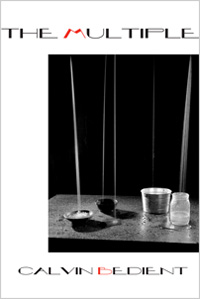Description
Translated by Cole Swensen
French on facing pages
As Jean Frémon describes, “He muses, he mopes, he immerses himself in atlases, he recites the names of lakes, he observes insects, he listens to the sounds of fountains, he reads Leibniz. This man, known here by the initials of a name that is not his own, is not without a certain resemblance to the writer Robert Walser. He could almost be his avatar, his emanation, his apparition.” Who is he? Or, more important, who is the I of these first-person vignettes? Walser? Frémon? or the translator? This layering of voices is echoed through the bilingual presentation of these short, musing prose poems.
“To find a huge room in a small house” deftly and intimately defines the project of Jean Frémon in THE POSTHUMOUS LIFE OF RW. It is as though a fitful modernism has at last come in from the cold to find its portion of peace and the measure of its resignation. Swensen’s translation is beautiful in its idiomatic proportions, perfectly confiding the spirit of this magical book.
Donald Revell
About the Author
Excerpt
Jean Frémon is the author of over 20 volumes in several genres. The director of a gallery of contemporary art, Frémon lives and works in Paris.
Cole Swensen is the author of 14 volumes of poetry, most recently Gravesend (University of California, 2012) and a collection of critical essays, Noise That Stays Noise (University of Michigan, 2011). Her work has won the National Poetry Series, the Iowa Poetry Prize, and the SF State Poetry Center Book Award, and has been a finalist for the National Book Award and twice for the LA Times Book Award. A 2007 Guggenheim Fellow, she is the co-editor of the 2009 Norton anthology American Hybrid and a translator of French poetry, prose, and art criticism. She divides her time between Paris and Providence, RI, where she teaches in the Literary Arts Department at Brown University.
2
I’m not really a great man, thinks RW, but not really a negligible
one, either. I put three or four books together that a couple of
publishers, in the long run, didn’t refuse—not everyone can say
as much. Of course, they didn’t really sell, but I have to admit
that I didn’t really try. They got some reviews that pointed out
their merits while pointing equally to their limits—what more
can you ask? If a few truly perceptive people, even just one or
two here and there, happen to read them sometime, somewhere
in the future, I’ll be quite content. And if by chance, because of
that, one of them just happens to write some small text of his
own, wouldn’t that, after all, fulfill all my hopes? he thinks.




